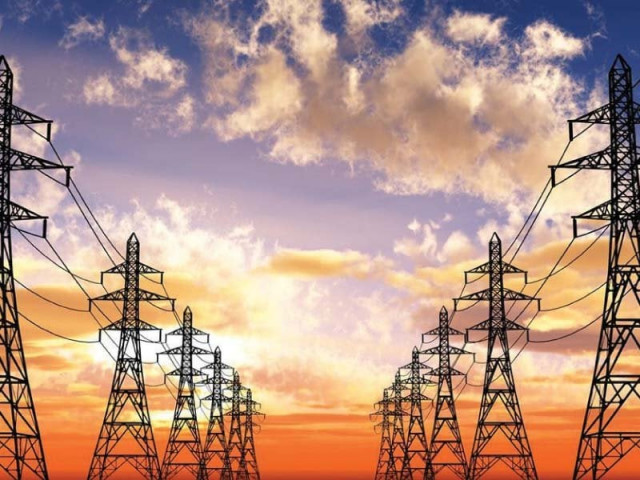CCOP again fails to develop consensus on K-Electric’s sale
PM sends back matter to inter-provincial body as issues could not be settled

Another issue was Shanghai Electric Power’s decision to set up a new special purpose vehicle (SPV) that would own 66.4% stake in K-Electric, said officials of the privatisation ministry. PHOTO: REUTERS
The Cabinet Committee on Privatisation (CCOP) on Friday again could not resolve the intricacies linked with the sale of 66.4% stake of KES Power Limited in K-Electric to China-based Shanghai Electric Power, said officials of the Ministry of Privatisation.
Prime Minister Shahid Khaqan Abbasi chaired the CCOP meeting at his official secretariat.
The premier sent back the matter to an inter-ministerial committee for further discussion after consensus could not be reached at the CCOP meeting. Privatisation Secretary Irfan Ali and Privatisation Minister Daniyal Aziz were not on the same page.
CCOP approves sale of K-Electric stake
In 2016, Shanghai Electric Power had announced its intention to acquire the entire 66.4% stake held by the Abraaj Group through an offshore company - KES Power - in K-Electric. KES Power is incorporated under the laws of Cayman Islands.
But the transaction, valued at $1.77 billion at that time, could not be completed due to legal interpretations and delay in settlement of financial liabilities. The deal was contingent upon the settlement of issues between the government and the seller.
Karachi swelters as K-Electric, SSCG trade blame
The Abraaj Group has made many moves to close the deal and the Chinese group has also used its influence, but progress is painstakingly slow to the frustration of government ministers and investors.
Bureaucracy has its own concerns as it believes that the political leadership is pushing ahead with the deal without carefully vetting the contract.
K-Electric expects lower tariff after LNG use in plants
In March this year, the CCOP allowed the issuance of a national security certificate to Shanghai Electric Power for purchasing a majority stake in K-Electric, which had created hopes that the deal would be eventually concluded.
However, when the matter went for vetting in the federal cabinet, it sent back the issue to the CCOP for addressing concerns of outstanding liabilities and legal structure of the entity.
The CCOP on Friday asked the ministries concerned to meet all the remaining requirements for concluding the deal, said Aziz while talking to The Express Tribune. He ruled out any disagreement among government departments.
But the minister alleged that delaying tactics were used to prevent conclusion of the deal for the past almost two years. He revealed that the CCOP agreed on a new legal language of the draft agreement as some confusion was created by the previous decision.
One of the outstanding issues was the extent of liabilities that Shanghai Electric would record on its books after taking over K-Electric, said an official of the privatisation ministry.
He suggested that since Shanghai Electric would have control over the management, it should be responsible for all the outstanding liabilities.
However, government ministers and Shanghai Electric were of the view that the company could be responsible for liabilities only to the extent of its 66.4% shareholding.
Aziz said all Pakistan laws would be applied to Shanghai Electric, therefore, there should not be any confusion about the ownership of liabilities.
K-Electric owes over $1.1 billion to the National Transmission and Despatch Company and Sui Southern Gas Company (SSGC).
While chairing the previous CCOP meeting, the premier said KES Power and Shanghai Electric Power would sign Extinguishment Deed and the Deed of Undertaking, which would extend provisions of the Original SPA of 2005 to Shanghai Electric Power.
The Petroleum Division had also requested the Privatisation Commission that the national security certificate should not be given until the issue of SSGC liabilities was resolved.
Another issue was Shanghai Electric Power’s decision to set up a new special purpose vehicle (SPV) that would own the 66.4% stake in K-Electric, said officials of the privatisation ministry.
They said Shanghai Electric had not informed earlier of its intention to own the stake through a third entity. The federal government will perform a fresh due diligence of the SPV, which may consume more time.
Separately, the issue of determination of multi-year tariff remains pending that has to be decided by the National Electric Power Regulatory Authority (Nepra). K-Electric has sought a review of Nepra’s previously determined tariff of Rs12.71 per unit, terming it low and commercially unviable.
Published in The Express Tribune, May 26th, 2018.
Like Business on Facebook, follow @TribuneBiz on Twitter to stay informed and join in the conversation.



















COMMENTS
Comments are moderated and generally will be posted if they are on-topic and not abusive.
For more information, please see our Comments FAQ